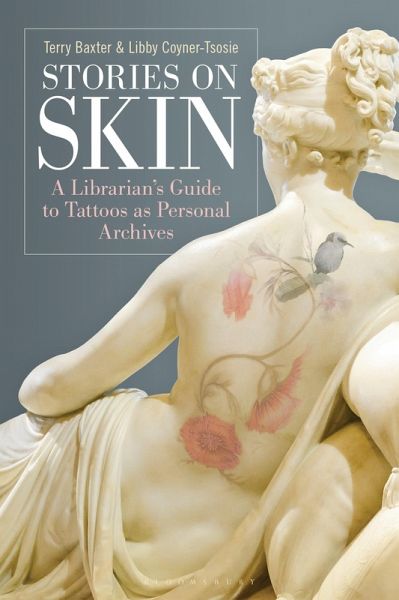
Stories on Skin (eBook, PDF)
A Librarian's Guide to Tattoos as Personal Archives
Versandkostenfrei!
Sofort per Download lieferbar
80,95 €
inkl. MwSt.
Weitere Ausgaben:

PAYBACK Punkte
40 °P sammeln!
Helping expand archival studies into impermanent media like body art, this book suggests that archiving must be considered a form of storytelling. Tattoos are not merely decorative; they contain deep meaning for individuals and communities. They document their wearers' personal histories and position in families or society, and they engage with a communal understanding of symbols. This unique book makes the case that archivists who want to preserve as full a human story as possible must recognize the rich documentation provided by tattoos. It also argues, in a broader sense, that traditional a...
Helping expand archival studies into impermanent media like body art, this book suggests that archiving must be considered a form of storytelling. Tattoos are not merely decorative; they contain deep meaning for individuals and communities. They document their wearers' personal histories and position in families or society, and they engage with a communal understanding of symbols. This unique book makes the case that archivists who want to preserve as full a human story as possible must recognize the rich documentation provided by tattoos. It also argues, in a broader sense, that traditional archives are not representative of the ways human beings transmit information through time and that they must be augmented by other types of storytelling to provide a more complete record of our species. Authors Baxter and Coyner touch on timely topics such as historical narratives, storytelling, cultural traditions, the body as a text, social control, and memorialization by considering tattoos as a personal and community archive. Discussing tattoos as a storytelling tool, the authors also challenge how history is kept and who gets included. Stories on Skin is committed to the rights of communities to tell their stories in their own way and to the power that right brings.













